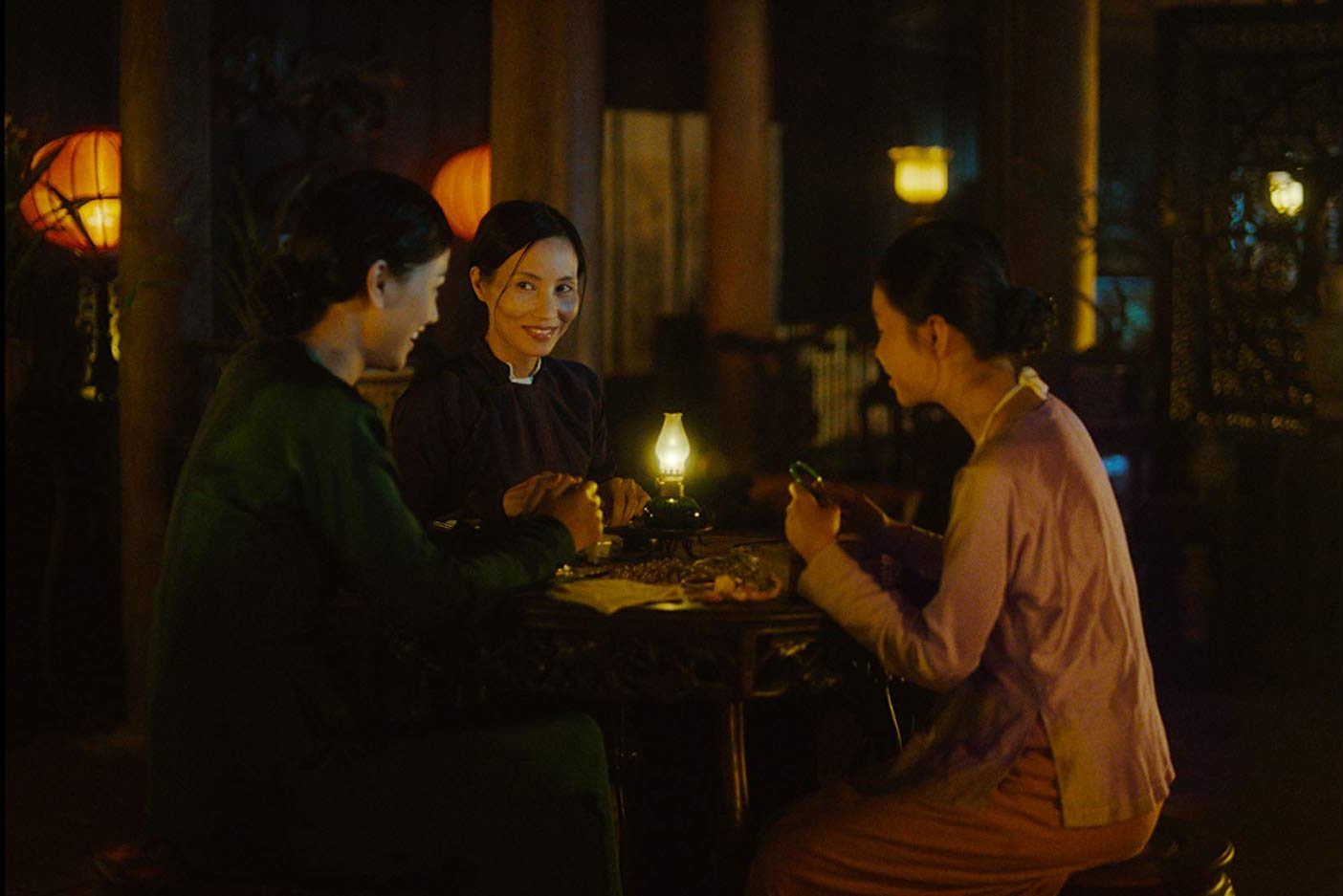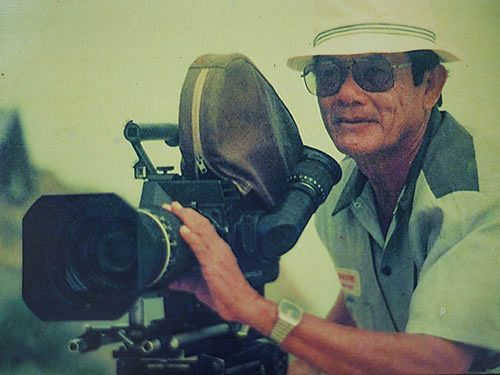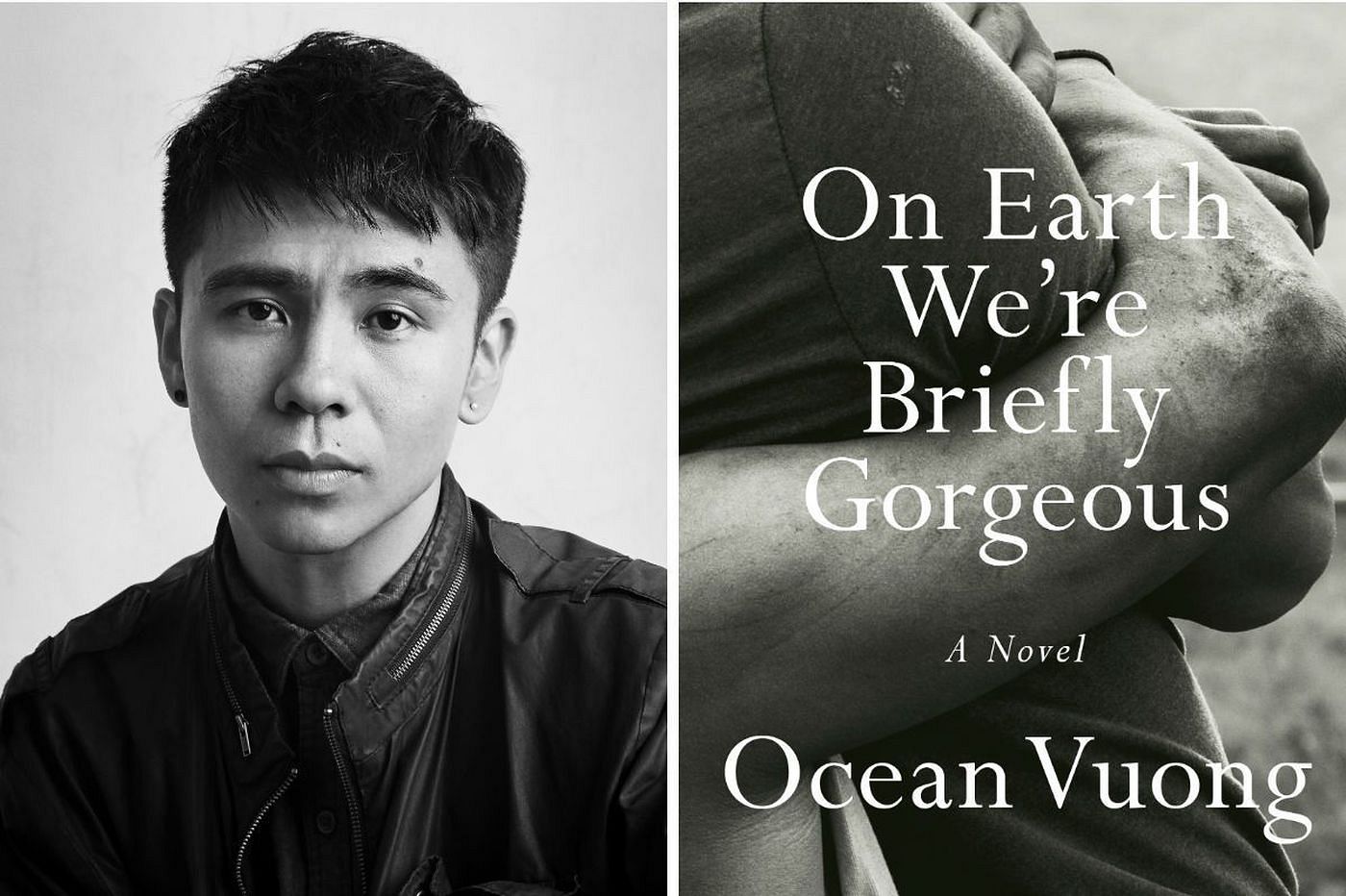Rarely has there been a Vietnamese film that ignited such impassioned, polarizing responses from the public. During its four days in theaters, The Third Wife awed, inspired, saddened, charmed, flustered, inflamed and enraged its audience (and non-audience) like never before.
This review includes major spoilers of The Third Wife and Raise the Red Lantern.
When it was announced that director Ash Mayfair’s debut feature The Third Wife won an award during the Toronto International Film Festival back in September last year, the news made national headlines. Mayfair, or Nguyen Phuong Anh, was born in Vietnam and received training in the US and UK. At the time, her directorial debut seemed to have captured the best of both worlds: western cinematic sensibilities marinated in distinctly Vietnam backdrops that could pass for watercolor paintings.
That makes it all the more disappointing when, after a cascade of incendiary commentary online, the production team announced that they would pull the movie from Vietnamese theaters barely a week after its premiere. The debate centered on Mayfair’s decision to cast a teenage actress to partake in mature scenes with an adult male actor, but more on that later.
To write this review, I have watched The Third Wife twice and, on the heels of its sudden but unsurprising withdrawal from cinema listings, was saddened for a range of reasons. The full-length version of The Third Wife has now been broadcast illegally all over the internet, but to me, this is the kind of movie one would want to relish on a widescreen, if for no other reason than its gorgeous visuals. Unfortunately, a major portion of potential viewers were robbed of this opportunity. It's been even more appalling to witness the vicious attacks directed at a child actress by an online mob.
It's a Man's Man's Man's World
Before even getting into the storyline, viewers are treated to lush scenes of Ninh Binh’s rivers and karst mountains as the main heroine makes her way to her new homestead on a wooden boat. May (Nguyen Phuong Tra My), 14 and wide-eyed, is married into a noble family as the third wife. The family makes a fortune from a silk plantation and, as the movie progresses, the silkworm proves to be both a narrative and metaphorical device, mirroring May’s maturation as a woman and her shaky first foray into motherhood. May’s husband Hung already has two wives: Ha (Tran Nu Yen Khe) and Xuan (Maya Mai Thu Huong). Ha has a son, Son, who’s into his adolescence while Xuan only has girls, ebony-haired Lien and Nhan.

The main cast of the movie.
The story is set during 19th-century northern Vietnam, where polygyny was not only allowed, it was encouraged, as it boosted the chance of families getting sons to pass on the family name. The more sons the better, and once the boys reach an appropriate age, they’re quickly pushed into arranged marriages. Son’s story arc reflects the then-society’s obsession with legacy-building as viewers witness his forced wedding with village girl Tuyet, who’s barely a teenager herself.
The Third Wife is among the few productions in recent history where the majority of the cast and executive crew are women. At the helm is director Ash Mayfair; executive producer Nguyen Thi Bich Ngoc, an industry veteran known for her work in Big Father, Small Father and Other Stories and My Nhan Ke; and Thai cinematographer Chananun Chotrungroj, whose creative sensibilities have elevated the film from family drama to a visual feast. Despite the setting’s oppressing attitudes toward women, the female filmmakers celebrate female sexuality through unabashed portrayals of topics that were then deemed taboo and morally depraved.
In a scene shortly after May’s wedding night, over a candle-lit table, the wives openly discuss female pleasure and masturbation. Upon May’s complaint that she only felt pain during penetration, Xuan suggests she dabble into the intimate art of self-gratification to “know what [she] likes” and remarks that Ha only gets off when the husband is rough. The risqué comments are doled out like weather-related small talk without any trace of blushing or euphemistic meanderings.
Tweenage Lien’s first menstruation and May’s eventual pregnancy are also presented with the same casual nonchalance. For a depiction of an age when female bodily functions were widely considered dirty and unspeakable topics, Mayfair is steadfast in demonstrating to the world that women’s bodies are nothing to scrunch one’s nose over. “It’s finally here,” Lien cheers when she bleeds for the first time, and, apart from some light vomiting, May’s pregnancy goes by without much discomfort.
The Double-Edged Sympathy
The Third Wife gives the audience an ethnographic view of daily life in Vietnamese society via Hung’s household as punctuated by festive occasions, major family milestones and even scandals that threaten to tear the very fabric of this tightly wound tapestry apart. It’s very obvious that men make the decisions in this gorgeous mahogany estate, and women are mere executors, quality assurance specialists, care-takers and, to put it crudely, baby-making vessels.
These themes echo those of Zhang Yimou’s 1991 classic Raise the Red Lantern, a dramatic masterpiece taking place in 1920s China that also explores the dynamics between four wives in a rich household. Raise the Red Lantern and The Third Wife, however, approach these interpersonal dynamics differently and harbor contrasting attitudes toward their female characters. In Lantern, chamber politics are increasingly cutthroat and shifting alliances can turn bloody and deadly before you can finish saying “lantern.” The wives, jaundiced by their thirst for affection and a burning desire to give birth to boys, are willing to push the limits of morality and their own mental constitution to make it out on top.
In contrast, The Third Wife takes the high road and refuses to give in to the genre’s melodramatic nudging by granting its wives the freedom to love one another and others without grave consequences. Extramarital affairs occur in both movies, but while the tryst in Yimou’s film ends in a gruesome death, Mayfair’s unfaithful woman comes out unscathed. On the contrary, the Vietnamese wives demonstrate a sisterly bond so strong it precipitated an intense kiss between May and Xuan. Then, when May goes into labor, a mortally perilous ordeal considering the period’s scant medical knowledge, Ha and Xuan stand right by her side, providing courage and appeasement.
This sympathy toward women, albeit refreshing, ultimately dilutes the message the movie wants to drive home and renders some characters’ decision unconvincing. Conversely, Raise the Red Lantern doesn’t allow its concubines the luxury of supporting one another; whomever the husband chooses to spend the night with will get an assortment of perks, including foot massages, the ability to pick the next day’s lunch menu and being treated like a queen by servants. In this Chinese household, affection is a prized commodity and the concubines are trained to crave it in the cruelest Pavlovian fashion; negative enforcement is also immediate and severe, dispiriting whichever erring wife with abandonment and isolation.
The wives in The Third Wife, on the other hand, are equally taken care of by head housekeeper Auntie Lao and a platoon of servants. None of them is entangled in any scandal — not ones that are discovered anyway — so perhaps the only litmus test to the household’s treatment of them is whether they can mother a son or not. Only Ha could, while Xuan and May gave birth to daughters. Even so, their status in the family remains unchanged and the husband still spends quality adult time with every wife notwithstanding their lack of sons. This makes May’s moral dilemma at the end of the movie rather unconvincing: she struggles with deciding whether to poison her baby girl or not, despite the newborn not causing her any inconvenience at home.
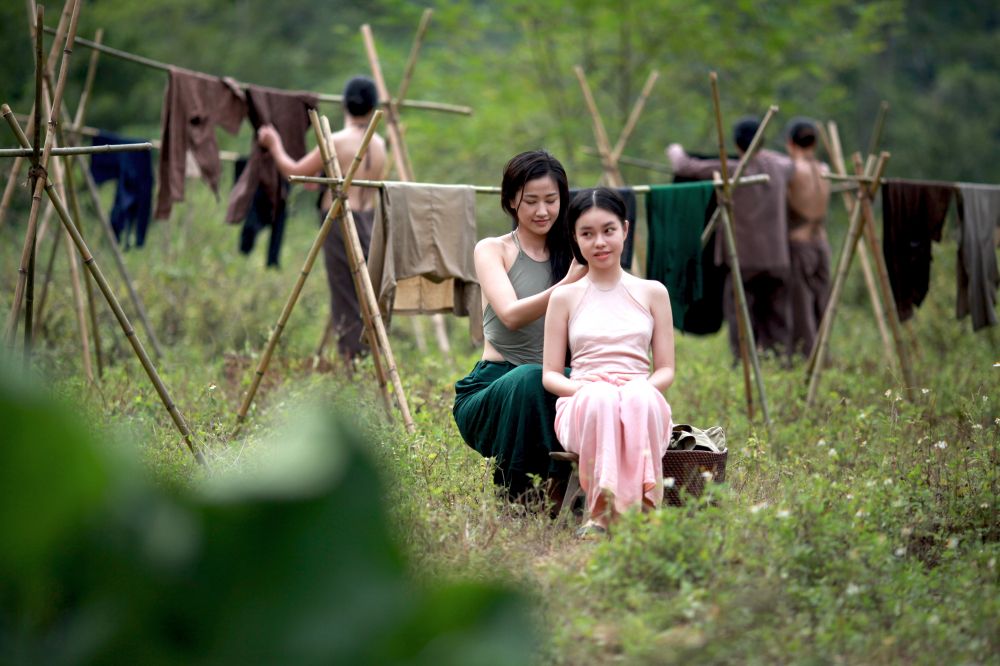
Xuan (left) and May (right) have a close bond throughout the movie.
For a movie named The Third Wife, it might have underutilized her and her two “sisters” in chronicling the various societal abuses women of the time had to face because the wives seem to lead a relatively dandy life. The film's theme of sexism, however, is more expressly illustrated through side characters: Nhan and Tuyet. Little Nhan is the youngest daughter of the second wife Xuan. The family plans to sell a calf to buy a new horse for Son, but Nhan’s request for the same gift is met with a scowl. Seeing straight through her family’s obvious favoritism toward her brother, she later expresses a desire to become a man when she grows up and “have many wives.”
The movie’s saving grace thematically is the emotional arc of Tuyet, Son’s new wife who doesn’t look any older than 15. The family moves forward with the betrothal despite his vehement objection. Son doesn’t want to commit to a marriage devoid of love; he’s been secretly having sexual relations and is deeply in love with his stepmother, Xuan. His unhappiness regarding the forced marriage culminates in a raucous tantrum right in front of Tuyet, who has no idea what she did wrong to inspire such bile from her new husband. The family attempts to nullify the bond, but Tuyet’s father is having none of it. To him, Tuyet is damaged goods, an utter failure incapable of keeping a husband.
“What have you done to cause our entire family such disgrace?” he bitterly asks. “You have only one responsibility, why couldn’t you accomplish it?”
Tuyet is destroyed, wanted by neither her husband nor her birth father. She later hangs herself in humiliation. With just ten minutes of Tuyet’s story, the movie has achieved what it set out to do much more efficiently than the stories of the three wives combined: highlighting the plights of Vietnamese women in a sexist patriarchal system that disregarded its females as much as it pampered its males. Someone should make a sequel about her titled The First Wife of the Second Wife’s Son.
The use of silence is another elegant detail in Tuyet’s portrayal proving that her role is much more than just a footnote, but is emblematic of her gender's misery. Throughout her appearance, the script doesn’t allow her any spoken line; all she does is preparing to serve her husband on their wedding night, crying and eventually, dying — as if symbolizing Vietnamese women’s past predicament.
A Story of Silenced Women, From Then to Now
That was the story of two centuries ago, inspired by the real-life experiences of Ash Mayfair’s grandmother and great-grandmother. As an effort to give voice to our history’s silenced women, it’s ironic that The Third Wife is suffering the same fate as the people it’s trying to champion. Under public pressure, the production team announced that it would cease screening The Third Wife nationwide after just four days in theaters. The reason for the self-censorship lies in main actress Nguyen Phuong Tra My’s age.
After the movie premiered, local social media promptly exploded in debates over whether a 13-year-old is too young to engage in sex acts, albeit simulated, on screen. Supporters of The Third Wife praise its artistic merits, feminist vision and lament the general public’s inability to appreciate movies that are not comedic or action-packed. Detractors, however, are quick to equate Tra My’s intimate scenes to child abuse and even go as far as accusing her mother of selling her daughter’s body for fame and money.
This is one of the few times I’m writing a movie review with a moral compass that’s spinning sporadically because even now, I’m not completely sure of which side to take. Even with its flaws, The Third Wife is without a doubt a gorgeous celebration of Vietnamese culture with high production value and good intention. Still, peeling away layers of online vitriol and hyperbolic accusations, at its core, the concern is valid. I’m inclined to believe that The Third Wife ought to cast an actress of age for its sex scenes, should it feel adamant that these mature scenes are vital to the story.
No matter which movie project is being examined under public scrutiny, a 13-year-old should not take part in sex scenes of this nature, in spite of the layers of precaution and protection that the crew afforded her. According to an official statement by the production team, all scenes were approved by My and her mother. While filming mature scenes, only a few female members of the crew, including Mayfair and My’s mother, were allowed on set. Prosthetics were also applied to cover the actors’ private areas.
It’s good to hear that The Third Wife production showed ample consideration toward its teenage actress and that filming was done professionally without any hiccup or harm. However, there’s no guarantee that other teen actors and actresses will also enjoy the same level of safeguarding in future projects to prevent abuse from happening, especially in Vietnam’s complicated entertainment industry. At the end of the day, despite its artistic and representative excellence, The Third Wife shouldn't be above reproach.
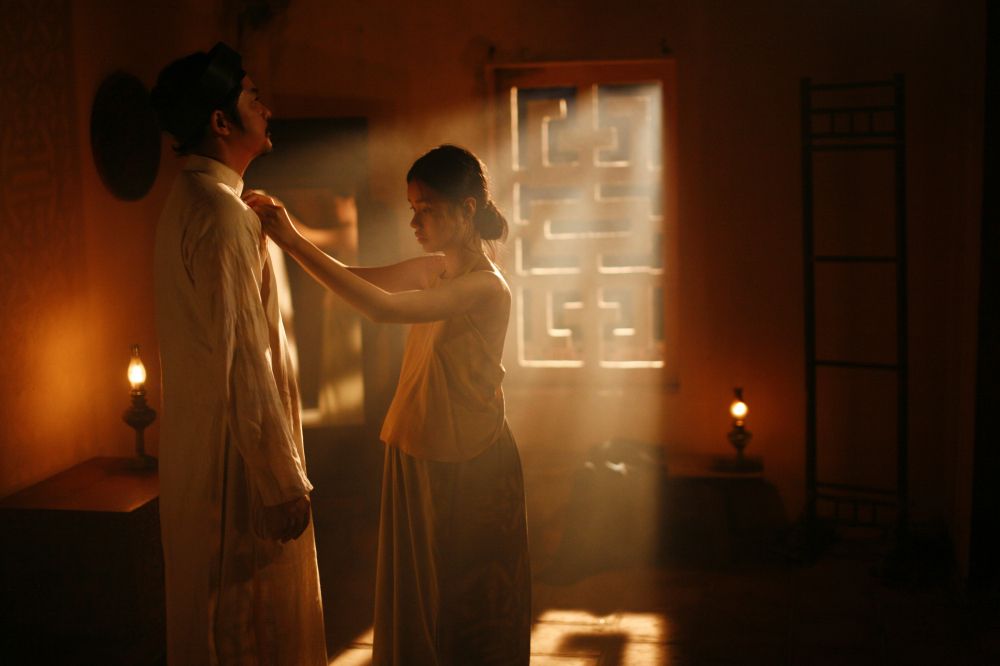
May's intimate scenes with Hung become the subjects of scrutiny.
The criticisms directed at The Third Wife are unprecedented, but in a way, they give rise to crucial conversations: should a minor be legally allowed to partake in projects that are sexually explicit, violent or potentially traumatizing? If yes, to what degree? What measures should be taken to protect actors and actresses of all age from abuse and harassment on set? These are the kind of questions we should be asking to move forward as a society that, up until now, has largely brushed aside the voice of its abuse victims.
Of course, this is changing as we speak. Many sexual harassment and abuse cases have been brought to light in recent years in Vietnam because we’re starting to listen to victims. Two prominent cases include the harassment by rock singer Pham Anh Khoa and not long ago, 61-year-old Nguyen Huu Linh, who groped and kissed a young girl in an elevator. Born into a societal climate that’s thirsting for social justice, especially for abuse victims, The Third Wife was eviscerated by outrage culture and its keyboard-wielding crusade.
The cause is just, but that is not to say that a large portion of online critics are justified in their vicious attacks directed at My and her family. By equating a simulated film shoot involving consenting parties to child abuse, some are doing actual victims a gross disservice by trivializing their suffering. Besides, it remains to be seen if these online discussions have benefited or protected My in any way, but the reality that her body has become a target to be dissected, debated and gossiped over must have caused mental distress for the young actress.
If there’s anything to learn from the #MeToo movement in Vietnam, it's to start listening to victims more, especially women, when they say that something is okay or not okay. If “no means no,” then perhaps there’s room for “yes means yes,” too. As of now, there’s no reason to believe that Tra My feels like she was abused while filming The Third Wife or those scenes have impacted her mental health in any way, so perhaps we should listen to her and, if she wants to speak out about her traumatic experience, now or later, we should listen to her then, too.

